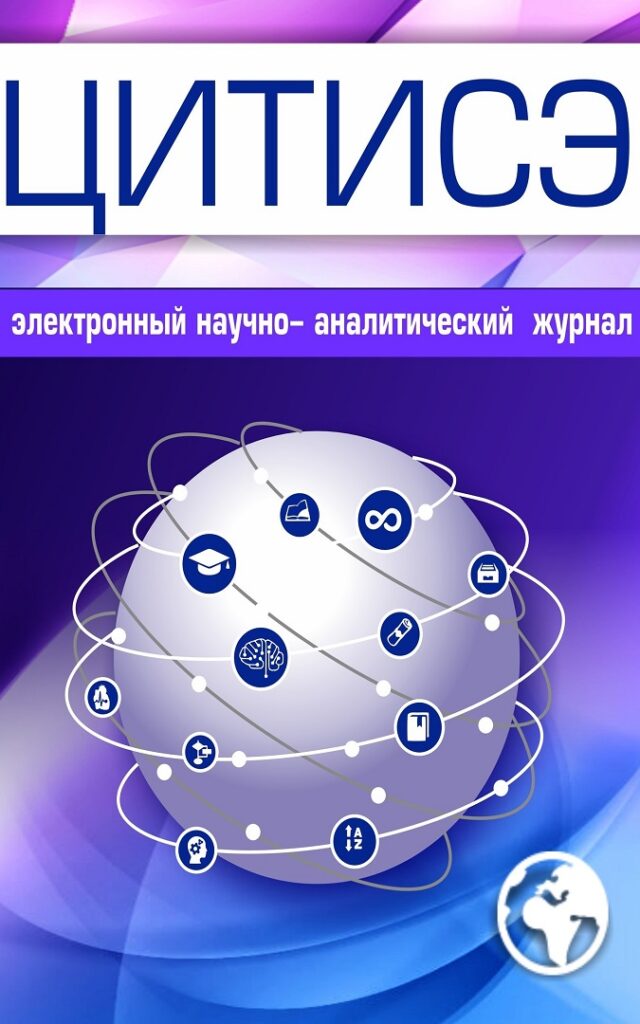Evseev V.O. , Epishin D.V.
“EURASIAPOL” AS A TOOL FOR SAFE DEVELOPMENT GREATER EURASIA
Research Full Article
UDC 351.74 (4)
Annotation. The purpose of the study is to study and evaluate the regulatory and legal institutions established in the CIS countries, in the space of Greater Eurasia, in order to ensure their sustainable development. The CIS countries are in a zone of turbulent development, which in many cases are specially created by the EU and the USA, in order to destabilize the situation in the country, in the refusal of the CIS countries from integration processes, in changing the mental co-knowledge of the top officials of the state. Economic and military-political separatism increased the importance of such institutions as the EAEU and the CSTO, which contributed to the proliferation of controlled chaos and all types of crime. It should be noted that the European security services, in particular Europol, for all its functional professionalism, depends on the ideology of the EU and the USA and contributes to the destabilization of the development of the CIS countries and the EAEU, in particular, helps the EU and the USA penetrate into the space of Greater Eurasia. Methods: system analysis, logical and historical analysis, regression analysis. Results: а system of equations has been obtained showing how elements of controlled chaos affect the characteristics of a country. It is proposed to create a security service – “Eurasiapol”, which will combat risks and traps in the Greater Eurasia and will contribute to strengthening integration processes. Conclusions. The creation of the new Eurasian security service “Eurasiapol” is certainly a new step of trust in interstate relations, it is certainly an indicator of readiness to introduce a new element into the integration mechanism that will prevent the emergence of external and internal risks that can create conditions for irreversible deviations in interstate relations.
Keywords: security service of «Eurasiapol», criminal zones, Greater Eurasia, Eurasia, security, development, integration, regression equations.
References:
- Abramova A.A. Interaction of the preliminary investigation bodies of the Russian Federation with international bodies and organizations in the investigation of terrorist financing crimes. Society: politics, economics, law. 2021. no.11 (100). pp. 57-62. (In Russian).
- Apkaev D.M. International organizations in the fight against transnational organized crime (brief description of activities). Penitentiary law: legal theory and law enforcement practice. 2023. no. 3 (37). pp. 71-76. (In Russian).
- Belyaeva Y.L. Current directions of Europol’s activities in the field of combating controversial corruption. Eurasian Law Journal. 2022. no. 2 (165). pp. 35-36. (In Russian).
- Volevodz A.G., Tsyplakova A.D. International police cooperation: modern institutional structure and development trends. International criminal law and international justice. 2023. no. 3. pp. 2-6. (In Russian).
- Giniatullina I.A. The main directions of cooperation of the Ministry of Internal Affairs of the Russian Federation with foreign services and international organizations. Science Alley. 2022. Vol. 1. no. 1 (64). pp. 968-972. (In Russian).
- Davydov V.A. Europol and Eurojust as institutions of cooperation between EU countries. Student Bulletin. 2020. no. 18-6 (116). pp. 28-29. (In Russian).
- Egorychev A.M. The formation of man and society in the prism of social education and national idea. Healthcare, education and security. 2016. no. 1 (5). pp. 63-69. (In Russian).
- Evseev V.O. Factors of formation of national mentality. Moscow, RGSU, Bulletin. The Educational and Methodological Association of Russian universities for education in the field of social work. Scientific and practical journal. 2010. no. 2. pp.163-174. (In Russian).
- Evseev V.O. Methodology of application of expert systems for the analysis of regional conflicts. CITISE. 2021. no. 3 (29). pp. 65-78. (In Russian).
- Evseev V.O. Research of resistance to changes in the sphere of socio-economic development. CITISE. 2021. no. 2 (28). pp. 116-125. (In Russian).
- Evseev V.O. Assessment of the level of tension in integration relations. CITISE. 2020. no. 4 (26). pp. 552-559. (In Russian).
- Evseev V.O. Computer modeling of socio-political processes. Ser. Scientific Foundation. Moscow, TSENTRKATALOG, 2020. (In Russian).
- Evseev V.O. Modeling conflict situations taking into account economic and political aspects. CITISE. 2019. no. 3 (20). p. 13. (In Russian).
- Evseev V.O. Modeling the probability of state-political coups and their economic consequences. CITISE. 2019. no. 2 (19). pp. 11. (In Russian).
- Evseev V.O., Kashnikov D.V. Political traps as an instrument of influence on electoral consciousness. Questions of political science. 2018. Vol. 8. no. 7 (35). pp. 211-222. (In Russian).
- Epishin D.V. Halabola. Notes of a career intelligence officer. Moscow. The Russian Foundation for the Promotion of Education and Science. 2020. 232 p. (In Russian).
- Stepanyan A.I. Transnational police activity of modern states in the context of globalization. Bulletin of the St. Petersburg University of the Ministry of Internal Affairs of Russia. 2022. no.1 (93). pp. 41-48. (In Russian).
- Sosnovskaya Yu.N., Markina E.V. On the issue of international cooperation in countering cyberterrorism. Bulletin of the Moscow University of the Ministry of Internal Affairs of Russia. 2022. no.3. pp. 253-256. (In Russian).
- Shanghai Convention on Combating Terrorism, Separatism and Extremism (signed in Shanghai on 06/15/2001). Collection of Legislation of the Russian Federation. 2003, no. 41. Article 3947. (In Russian).


